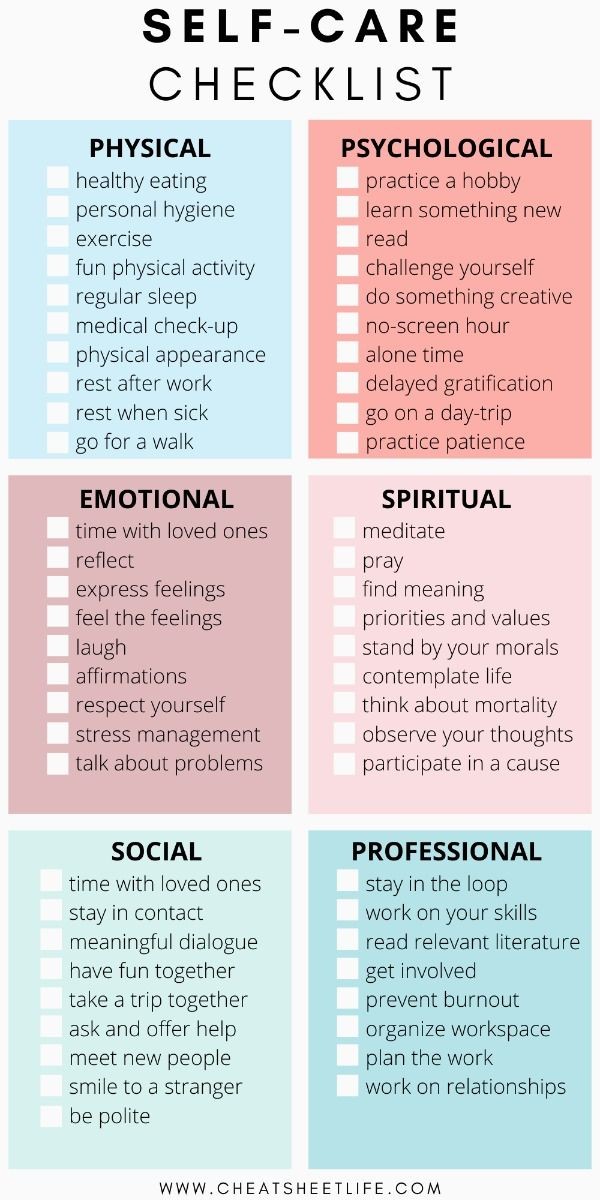**The Ultimate Self-Care Ideas Checklist: Your Guide to Wellness and Recharge**
In our fast-paced world, taking time for self-care has never been more crucial. Self-care is not just about pampering yourself; it’s a holistic approach to maintaining your physical, mental, and emotional well-being. Whether you’re feeling overwhelmed, stressed, or just in need of a pick-me-up, incorporating self-care practices into your daily routine can make a significant difference. To help you navigate your self-care journey, we’ve compiled the ultimate self-care ideas checklist—an all-encompassing guide to rejuvenating your mind, body, and soul.
### **1. **Physical Self-Care: Nurturing Your Body**
**1.1 Prioritize Sleep**
Sleep is essential for overall health and well-being. Aim for 7-9 hours of quality sleep each night to rejuvenate your body and mind. Create a relaxing bedtime routine, maintain a consistent sleep schedule, and ensure your sleep environment is comfortable and free from distractions.
**1.2 Stay Hydrated**
Drinking enough water is vital for maintaining your body's functions and energy levels. Aim to drink at least 8 glasses of water a day, and consider adding hydrating foods like fruits and vegetables to your diet.
**1.3 Exercise Regularly**
Regular physical activity boosts your mood, energy, and overall health. Find an exercise routine that you enjoy, whether it’s yoga, running, dancing, or strength training. Aim for at least 30 minutes of exercise most days of the week.
**1.4 Eat a Balanced Diet**
A well-balanced diet supports your body’s needs and enhances your well-being. Focus on consuming a variety of nutrient-rich foods, including fruits, vegetables, whole grains, lean proteins, and healthy fats. Avoid excessive sugar, caffeine, and processed foods.
**1.5 Pamper Your Skin**
Skincare is an essential part of physical self-care. Establish a skincare routine that suits your skin type, including cleansing, moisturizing, and sun protection. Treat yourself to occasional facials or face masks for an extra dose of indulgence.
### **2. **Mental Self-Care: Recharging Your Mind**
**2.1 Practice Mindfulness and Meditation**
Mindfulness and meditation can help reduce stress and improve mental clarity. Incorporate mindfulness practices into your daily routine, such as deep breathing exercises, guided meditations, or mindful walking.
**2.2 Set Boundaries**
Setting boundaries is crucial for mental well-being. Learn to say no when needed and establish limits to protect your time and energy. Prioritize activities that align with your values and goals.
**2.3 Engage in Hobbies**
Engaging in hobbies and activities you enjoy can be a great way to unwind and boost your mood. Whether it’s painting, reading, gardening, or playing a musical instrument, make time for activities that bring you joy.
**2.4 Seek Professional Support**
If you’re struggling with mental health issues, seeking professional support can be incredibly beneficial. Consider talking to a therapist or counselor who can provide guidance and support tailored to your needs.
**2.5 Practice Gratitude**
Keeping a gratitude journal can help shift your focus from stressors to positive aspects of your life. Write down things you’re grateful for each day to foster a positive mindset and improve mental resilience.
### **3. **Emotional Self-Care: Fostering Inner Peace**
**3.1 Cultivate Positive Relationships**
Surround yourself with supportive and uplifting people. Cultivate relationships that make you feel valued and understood. Spend quality time with friends and family who contribute positively to your emotional well-being.
**3.2 Practice Self-Compassion**
Be kind and compassionate towards yourself. Acknowledge your achievements and give yourself grace during challenging times. Practice positive self-talk and challenge any negative self-beliefs.
**3.3 Engage in Relaxation Techniques**
Relaxation techniques can help soothe your emotions and reduce stress. Explore practices such as progressive muscle relaxation, aromatherapy, or listening to calming music to find what works best for you.
**3.4 Create a Safe Space**
Designate a space in your home where you can retreat for relaxation and reflection. This could be a cozy reading nook, a meditation corner, or a spa-like bathroom. Make it a sanctuary where you feel safe and at ease.
**3.5 Express Yourself Creatively**
Creative expression can be a powerful outlet for emotions. Explore various forms of creative expression, such as writing, drawing, or crafting, to process and release your feelings.
### **4. **Social Self-Care: Nurturing Your Connections**
**4.1 Maintain Social Connections**
Maintaining social connections is vital for emotional health. Schedule regular catch-ups with friends and family, whether in person or through virtual means. Social interaction can provide support, joy, and a sense of belonging.
**4.2 Participate in Community Activities**
Engage in community activities or volunteer work that aligns with your interests and values. Being involved in your community can provide a sense of purpose and connection with others.
**4.3 Foster Healthy Communication**
Effective communication is key to building and maintaining healthy relationships. Practice active listening, express yourself clearly, and address any conflicts or misunderstandings with empathy and openness.
**4.4 Set Social Boundaries**
Just as you set boundaries for work and personal time, establish boundaries for social interactions. Prioritize relationships that are supportive and fulfilling, and minimize time spent with individuals or situations that drain your energy.
**4.5 Celebrate Achievements**
Celebrate your achievements and milestones with others. Share your successes, big or small, and acknowledge the support and contributions of those around you. Celebrating achievements fosters positive connections and boosts your self-esteem.
### **5. **Spiritual Self-Care: Connecting with Your Inner Self**
**5.1 Explore Spiritual Practices**
Explore spiritual practices that resonate with you, whether they involve religion, philosophy, or personal beliefs. Practices such as prayer, meditation, or reflection can provide a sense of purpose and inner peace.
**5.2 Spend Time in Nature**
Connecting with nature can be a profound form of spiritual self-care. Spend time outdoors, whether it’s hiking, gardening, or simply enjoying a walk in the park. Nature can offer tranquility and a sense of grounding.
**5.3 Engage in Acts of Kindness**
Acts of kindness, both to yourself and others, can enhance your sense of fulfillment and connection. Practice self-compassion and kindness towards others through small gestures or meaningful actions.
**5.4 Reflect and Journal**
Journaling can be a powerful tool for spiritual self-care. Reflect on your values, beliefs, and personal growth. Use journaling as a way to explore your inner thoughts and connect with your sense of purpose.
**5.5 Embrace Mindful Living**
Embrace a mindful approach to daily living by being present and fully engaged in each moment. Mindfulness can help you connect with your inner self and foster a deeper sense of peace and contentment.
### **Conclusion**
The Ultimate Self-Care Ideas Checklist serves as a comprehensive guide to nurturing every aspect of your well-being. By incorporating physical, mental, emotional, social, and spiritual self-care practices into your daily routine, you can achieve a balanced and fulfilling life. Remember, self-care is not a one-size-fits-all approach; it’s about finding what works best for you and making it a regular part of your life. Prioritize your well-being and embrace the journey of self-care, knowing that each step you take contributes to a healthier, happier you.
#selfcareroutine






